Fostering Growth and Connection in Society
Community involvement is a cornerstone of personal development and social cohesion. Engaging actively in community activities nurtures social skills, emotional resilience, and a sense of belonging. From volunteering to school programs, different forms of community participation play a vital role in shaping individuals and fostering healthier societies. This article explores the multifaceted benefits of community involvement, the strategies to enhance social skills through active participation, and how frameworks like SEL support these endeavors.
Benefits of Participating in Social and Community Activities
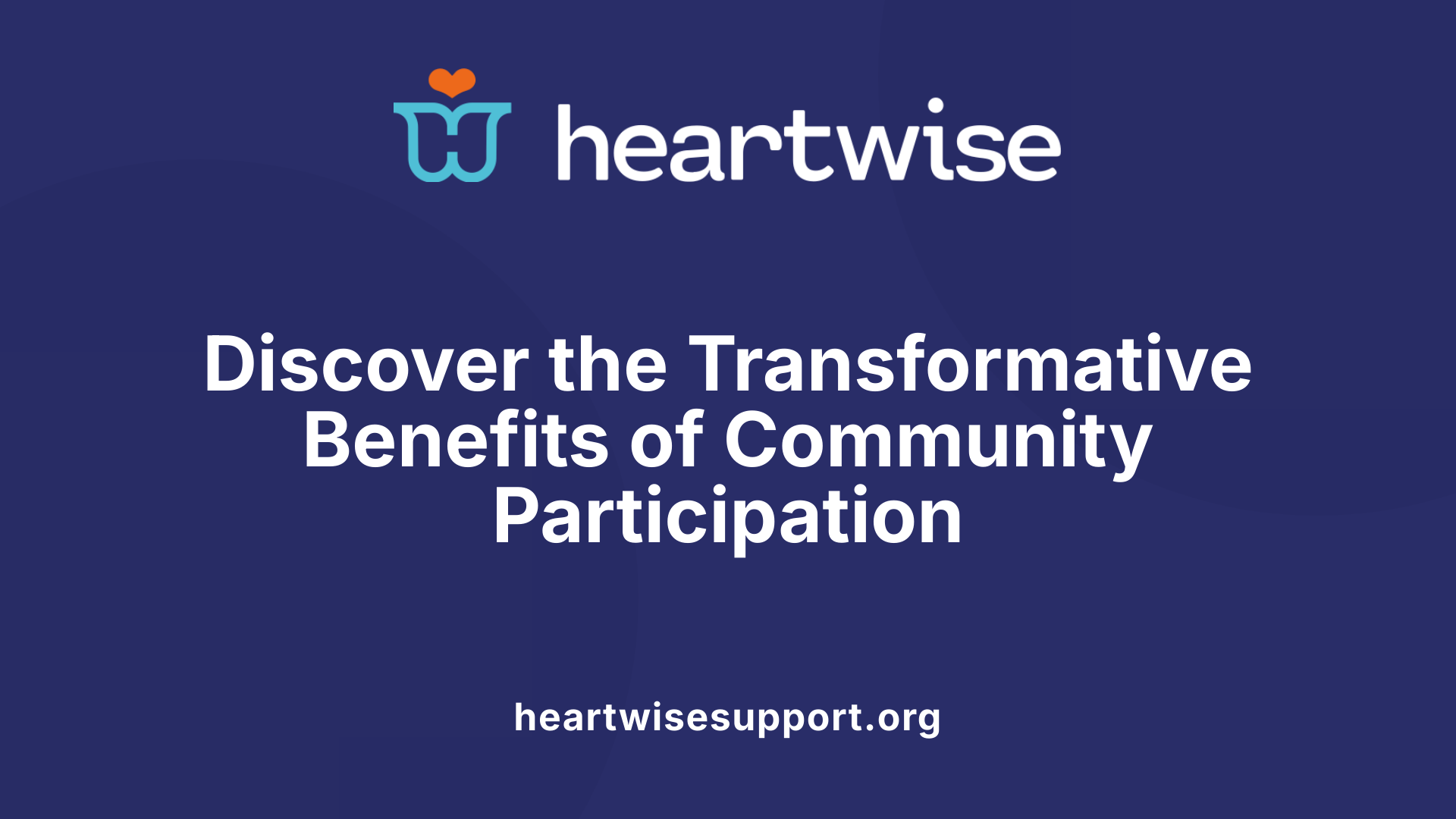
What are the benefits of participating in social and community activities?
Engaging in social and community activities brings a wide range of advantages for individuals and their communities. One of the most notable benefits is the positive impact on mental health. Regular participation can reduce stress, lift mood, and increase overall well-being by promoting social interactions and a sense of belonging.
Building strong social connections is another vital benefit. Involvement in community groups, volunteering, or attending local events helps people develop friendships, expand their networks, and foster feelings of inclusion. Such connections are valuable for emotional support and personal development.
Participation also sharpens communication and relationship skills. Volunteers often engage with diverse groups, practicing active listening, empathy, and conflict resolution. These skills translate well into personal, social, and professional settings.
Physical health is another area of benefit. Activities like community gardening, sports, or outdoor events encourage movement, which can promote better cardiovascular health, especially in older adults. Regular activity associated with community involvement helps reduce the risk of chronic conditions.
Additionally, community engagement supports personal growth and empowerment. It builds confidence, develops leadership qualities, and provides opportunities for skill development. Many individuals find purpose and motivation through their contributions, leading to a sense of achievement.
Finally, active participation fosters social inclusion and strengthens community bonds. It encourages civic responsibility, promotes diversity, and enhances social cohesion. These efforts contribute to healthier, more vibrant societies where everyone feels valued and connected.
| Benefit | Description | Impact Area |
|---|---|---|
| Mental health improvements | Reduces stress, enhances mood, builds resilience | Emotional well-being |
| Building social connections | Fosters friendships, support networks, and community ties | Social skills and belonging |
| Enhancement of communication skills | Practicing active listening and empathy in diverse groups | Personal, social, professional growth |
| Physical health benefits | Promotes activity and reduces chronic disease risks | Physical health |
| Personal growth and empowerment | Boosts confidence, leadership, and sense of purpose | Personal development |
| Promotion of social inclusion | Fosters diversity, civic engagement, and community trust | Community cohesion |
Participation in community activities is a vital component of a healthy, inclusive society. It enriches individuals' lives while strengthening the social fabric that binds us all.
Community Involvement's Role in Social Skill Development
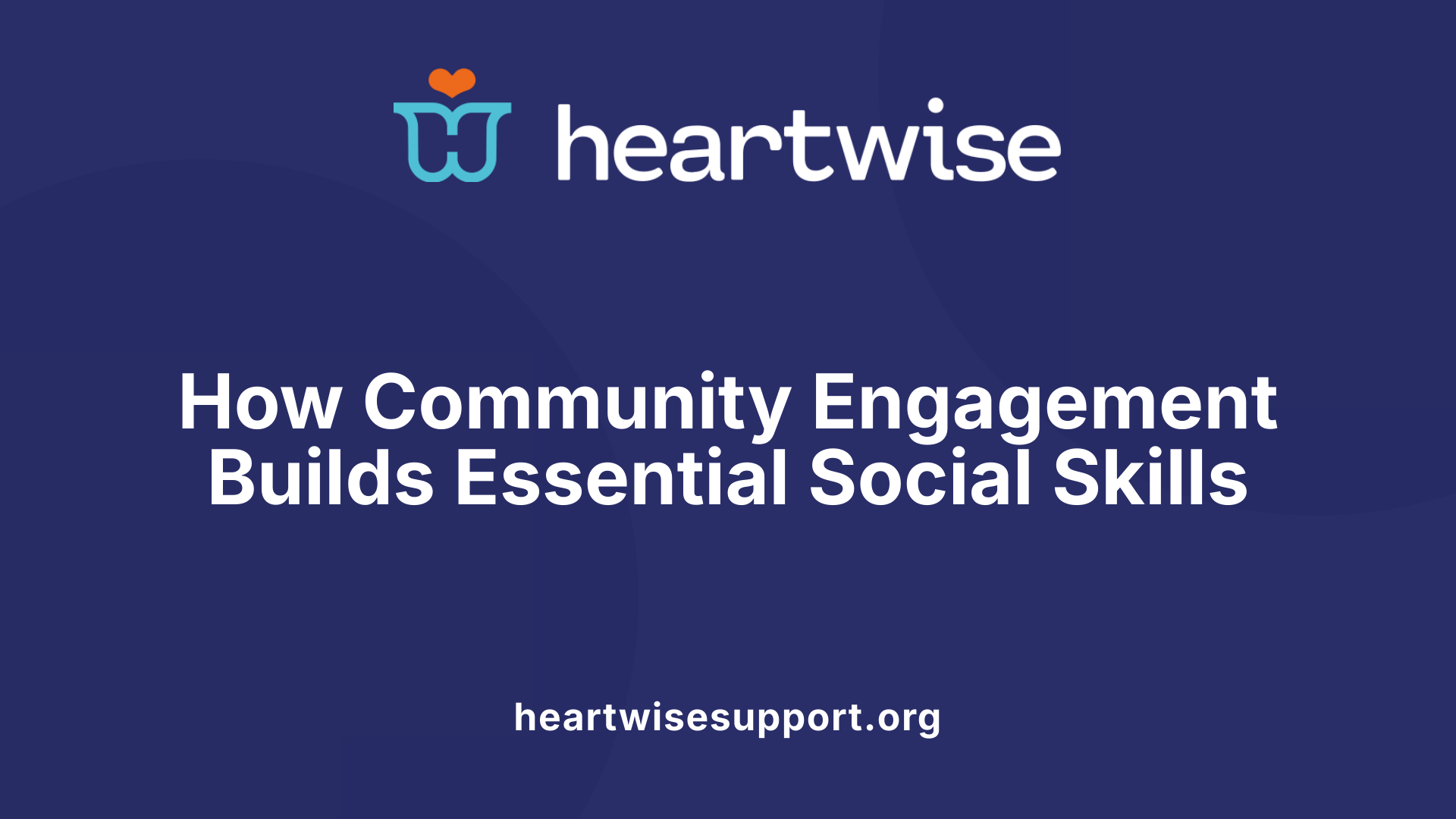
What is the role of community involvement in social skill development?
Community involvement significantly contributes to building and enhancing social skills among individuals of all ages. When people actively participate in community activities, such as volunteering, neighborhood events, or local clubs, they engage in shared experiences that promote effective communication and teamwork.
Participation in these activities encourages individuals to practice listening, express themselves clearly, and work collaboratively with others. For example, group projects like community clean-ups or organizing neighborhood festivals teach problem-solving and organizational skills while fostering trust and mutual respect.
Beyond communication and cooperation, community involvement nurtures a sense of belonging and purpose. Feeling connected to a community enhances self-esteem and emotional well-being, providing support networks that help individuals manage stress and develop emotional regulation.
Engaging regularly in community initiatives also helps individuals develop leadership abilities. Leading a team during a project or organizing community events requires decision-making, responsibility, and guiding others—skills that are crucial both socially and professionally.
Furthermore, active community participation exposes individuals to diverse populations, fostering understanding and appreciation of different cultures and perspectives. This exposure cultivates social justice awareness and promotes inclusivity, enriching social cohesion.
Building social capital through community engagement results in stronger, more resilient neighborhoods. It nurtures relationships based on trust, reciprocity, and shared goals, which are essential for a cohesive society.
In summary, community involvement offers a comprehensive platform for nurturing essential social skills. It supports emotional health, leadership development, and cultural understanding, ultimately fostering personal growth and healthier communities.
How Volunteering and Community Engagement Foster Social Skills
How do community engagement and volunteering help develop social skills?
Volunteering and active community involvement are powerful tools for developing essential social skills. Participating in volunteer work offers real-world opportunities to practice teamwork and effective communication. Whether organizing a community event or working in a group project, volunteers learn to coordinate efforts, listen actively, and express their ideas clearly.
Engagement in diverse settings helps build support networks. Volunteers meet people from different backgrounds, which broadens their social awareness and fosters inclusive relationships. These interactions boost confidence and help form lasting friendships, creating a sense of belonging.
Fostering empathy and cultural sensitivity is another significant benefit. Working alongside people with varied experiences exposes volunteers to different perspectives, promoting understanding and compassion. This emotional insight enhances social cohesion and nurtures respectful interactions.
Moreover, volunteering encourages leadership and problem-solving skills. Facing unforeseen challenges during projects motivates volunteers to take initiative, think critically, and find effective solutions. Such experiences develop confidence and resilience.
Participation also promotes personal growth and well-being. Contributing to meaningful causes boosts mood, self-esteem, and a sense of purpose. These positive feelings translate into better emotional regulation and social functioning.
Finally, community engagement fosters civic responsibility and collaboration. Working with diverse community groups helps individuals understand societal issues, which encourages responsible participation and collective action.
| Aspect | Benefits | Examples |
|---|---|---|
| Practice teamwork | Enhances cooperation and coordination | Group projects, community clean-ups |
| Building networks | Expands support systems | Meeting diverse people, forming friendships |
| Fostering empathy | Promotes understanding and respect | Working with different cultures |
| Developing leadership | Boosts confidence and initiative | Leading a community event |
| Promoting well-being | Improves mood and self-esteem | Volunteering for a charitable cause |
| Civic responsibility | Encourages responsible participation | Voting drives, advocacy campaigns |
By actively engaging in volunteer activities, individuals develop critical social skills that serve them personally and strengthen their community as a whole.
Effective Strategies and Activities for Social Skill Development
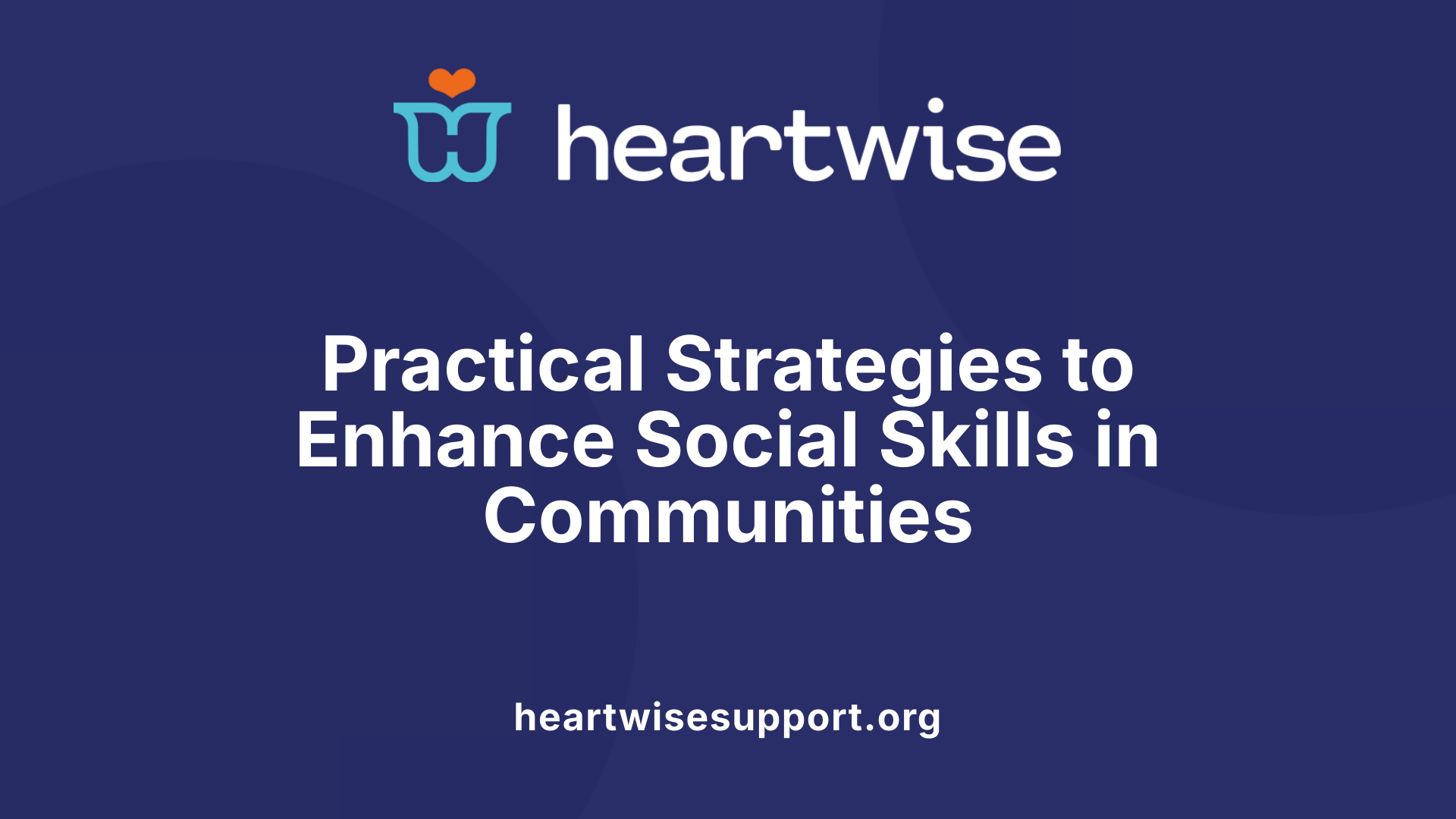
What strategies and activities can be used to develop social skills through community engagement?
Developing social skills through community engagement involves a variety of practical strategies and engaging activities. Participating in community events, such as local festivals, town hall meetings, or neighborhood clean-ups, offers valuable opportunities for individuals to practice communication, cooperation, and leadership in real-world settings.
Volunteer management initiatives and peer mentoring programs are effective tools that foster supportive relationships and guide newcomers in developing interpersonal skills. These activities encourage teamwork, responsibility, and empathy, creating a positive environment for personal growth.
Structured activities like social role-plays and group discussions are commonly used in programs to simulate real-life interactions. Role-playing exercises help participants practice social scenarios, improve their conflict-resolution skills, and understand diverse perspectives.
The use of multimedia tools and social narratives can significantly enhance social skills training. Videos demonstrating positive social behaviors serve as models for imitation, while social stories help individuals learn appropriate responses in specific situations, increasing their self-awareness and empathy.
Community service learning projects are another impactful method. By addressing local issues—such as food insecurity or environmental concerns—participants develop teamwork, problem-solving, and civic responsibility. Reflecting on these experiences helps deepen their understanding of social dynamics and fosters a sense of purpose.
Incorporating reflective practices and gathering participant feedback are essential components of effective social skill development. Reflection helps individuals process their experiences, recognize areas for improvement, and reinforce positive behaviors.
Overall, a combination of participatory community activities, structured educational tools, and reflective practices creates a comprehensive approach to enhancing social skills, making community engagement both meaningful and transformative.
The Significance of Social-Emotional Learning Frameworks
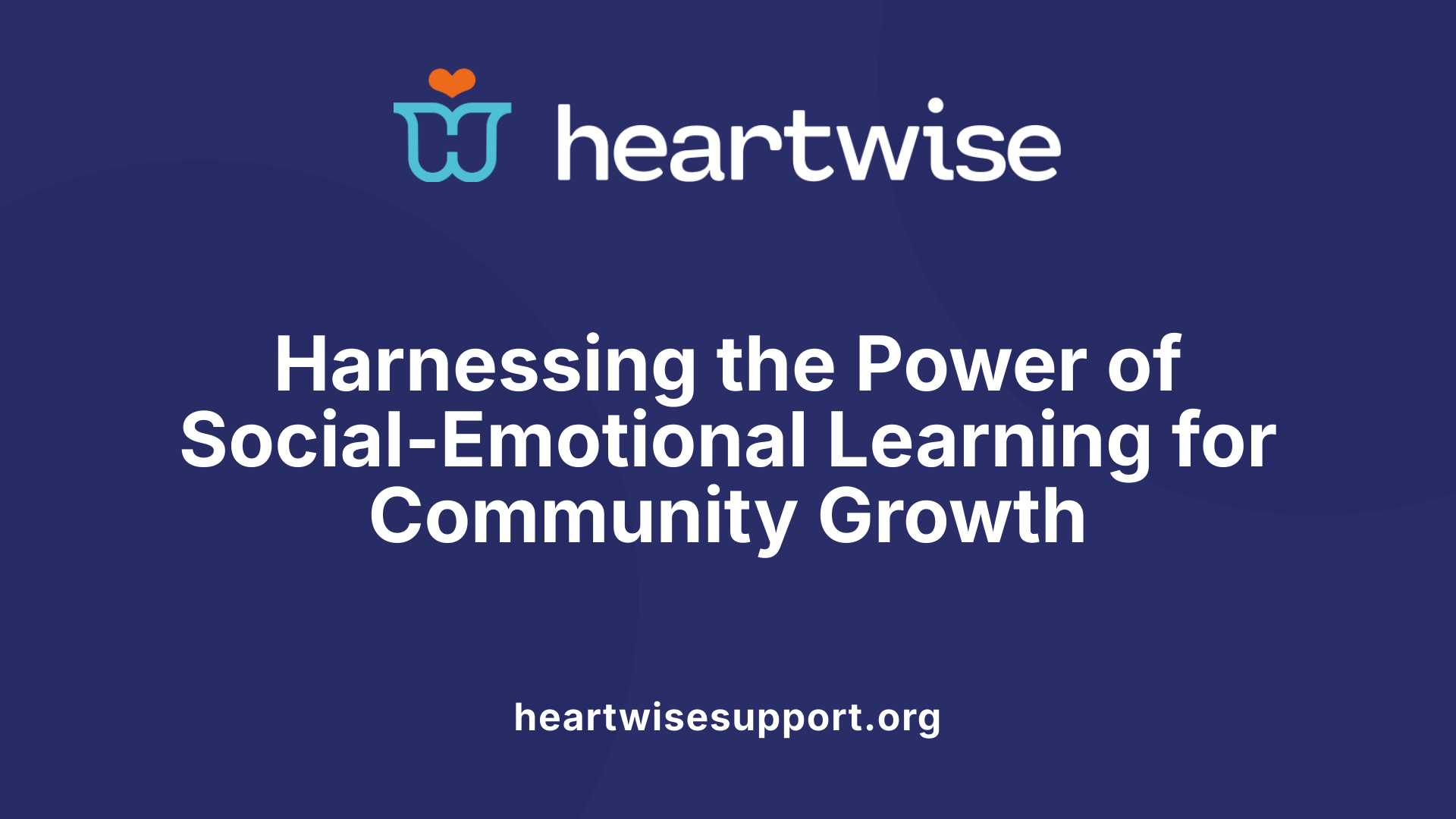
What is the significance of social-emotional learning (SEL) frameworks in fostering social skills within communities?
Social-emotional learning (SEL) frameworks are vital tools that help develop essential skills for personal and community growth. These frameworks, like the well-known CASEL model, focus on nurturing competencies such as self-awareness, empathy, social awareness, relationship skills, and responsible decision-making.
By providing structured approaches, SEL frameworks guide educational and community programs to create environments where individuals can practice and strengthen their social skills. This ultimately leads to more positive social interactions, better emotional regulation, and a sense of belonging among community members.
Implementing SEL initiatives in schools and local organizations results in numerous benefits. These include improved behaviors, fewer instances of bullying, and enhanced academic performance. Additionally, communities become more inclusive and equitable, fostering respect and understanding among diverse groups.
Furthermore, SEL promotes ongoing practice and collaboration, which are key to building safe, welcoming, and supportive community environments. Such settings encourage trust, mutual support, and cooperation, allowing individuals to thrive emotionally and socially.
Overall, these frameworks are indispensable for cultivating resilient, socially capable individuals. They lay the foundation for healthier, more cohesive communities where everyone feels valued and connected, reducing social tensions and promoting collective well-being.
Summary Table of Core Components and Impact of SEL Frameworks:
| Core Competency | Description | Community Impact |
|---|---|---|
| Self-awareness | Recognizing one's emotions and strengths | Increased self-confidence and emotional regulation |
| Self-management | Regulating emotions and behaviors | Better impulse control and resilience |
| Social awareness | Empathy and understanding societal norms | Fosters inclusivity and respect |
| Relationship skills | Building healthy relationships | Stronger social bonds and teamwork |
| Responsible decision-making | Making ethical, constructive decisions | Reduced conflict and increased community harmony |
By integrating SEL across educational and community settings, stakeholders can create dynamic, supportive environments that empower individuals and foster societal growth based on empathy, respect, and responsibility.
School and Community Programs Enhancing Social and Emotional Skills
How effective are school-based and community programs in enhancing social and emotional competencies?
Research consistently demonstrates that programs targeting social and emotional learning (SEL) are highly successful across a variety of settings. These initiatives improve students' abilities to manage their emotions, develop better relationships, and navigate social interactions more effectively.
School and community-based SEL programs contribute to higher academic achievement by creating safer and more inclusive environments. Students enrolled in these programs tend to show increased attendance, reduced behavioral issues, and lower rates of bullying and emotional distress. Moreover, these programs foster resilience and prosocial behaviors such as empathy, cooperation, and responsible decision-making.
Implementing evidence-based interventions enhances not only student outcomes but also benefits educators by improving classroom climate and increasing job satisfaction. These programs often lead to long-term societal gains, including better mental health, workforce readiness, and reduced public health costs.
Overall, comprehensive, well-designed SEL programs—carefully planned, executed, and evaluated—are essential for nurturing equitable, supportive, and resilient learning communities. They lay the foundation for healthier, more connected societies and contribute significantly to individual personal growth.
| Program Type | Outcomes | Benefits for Community |
|---|---|---|
| School-based | Academic success, social skills | Builds inclusive schools, improves safety |
| Community programs | Resilience, prosocial behavior | Enhances community cohesion, reduces emotional distress |
In conclusion, embedding SEL strategies into school and community programs offers rich returns by fostering well-rounded individuals equipped to thrive socially, emotionally, and academically.
Resources and Methods for Implementing Community Engagement
Effective community engagement relies on a variety of resources and approaches that enhance social skills and foster inclusive participation.
Community centers, workshops, and mentorship programs serve as foundational spaces where individuals from diverse backgrounds can meet, share ideas, and develop interpersonal skills. These venues often host live events like public meetings, open houses, and focus groups, which provide opportunities for face-to-face interaction, as well as digital platforms that facilitate virtual participation through social media, web portals, and mobile apps.
Public consultations such as surveys, participatory budgeting, and community tours enable residents to express their views and influence decision-making processes. Frameworks like the IAP2 Spectrum of Public Participation, Asset-based Community Development (ABCD), and Collective Impact offer structured strategies to ensure inclusivity and shared leadership.
Digital outreach tools expand the reach of engagement activities, allowing organizations to connect with marginalized groups often underrepresented in traditional settings. Incorporating online dialogues, social media campaigns, and virtual meetings helps bridge gaps and make participation accessible to everyone.
Building community awareness also involves organizing awareness campaigns, establishing advisory boards, and fostering collaborations through community events, which cultivate trust and a sense of ownership. Implementation often includes stakeholder engagement, focus on cultural sensitivity, and adaptive strategies to respond to community feedback.
Combining these methods creates a dynamic environment where social skills such as communication, empathy, and collaborative problem-solving are honed. When community members feel heard and involved, they are more likely to develop stronger relationships, increased civic responsibility, and a lasting commitment to community well-being.
| Resource/Method | Description | Additional Notes |
|---|---|---|
| Community Centers | Physical hubs for meetings and activities | Offer in-person social skill development opportunities |
| Workshops & Mentorships | Skills-building events and mentorship for youth and adults | Focus on active listening, teamwork, and leadership |
| Public Meetings & Surveys | Forums for community dialogue and feedback | Facilitate shared decision-making and inclusivity |
| Frameworks (IAP2, ABCD) | Structured models for participation and development | Promote inclusive, strategic engagement |
| Digital Outreach | Online platforms, social media, apps | Broadens participation, especially for marginalized groups |
| Community Events & Tours | Cultural festivals, community walks | Enhance cultural understanding and social bonds |
| Advisory Committees | Resident-led groups guiding initiatives | Foster ownership and ongoing engagement |
Impact of Community Participation on Personal and Social Growth
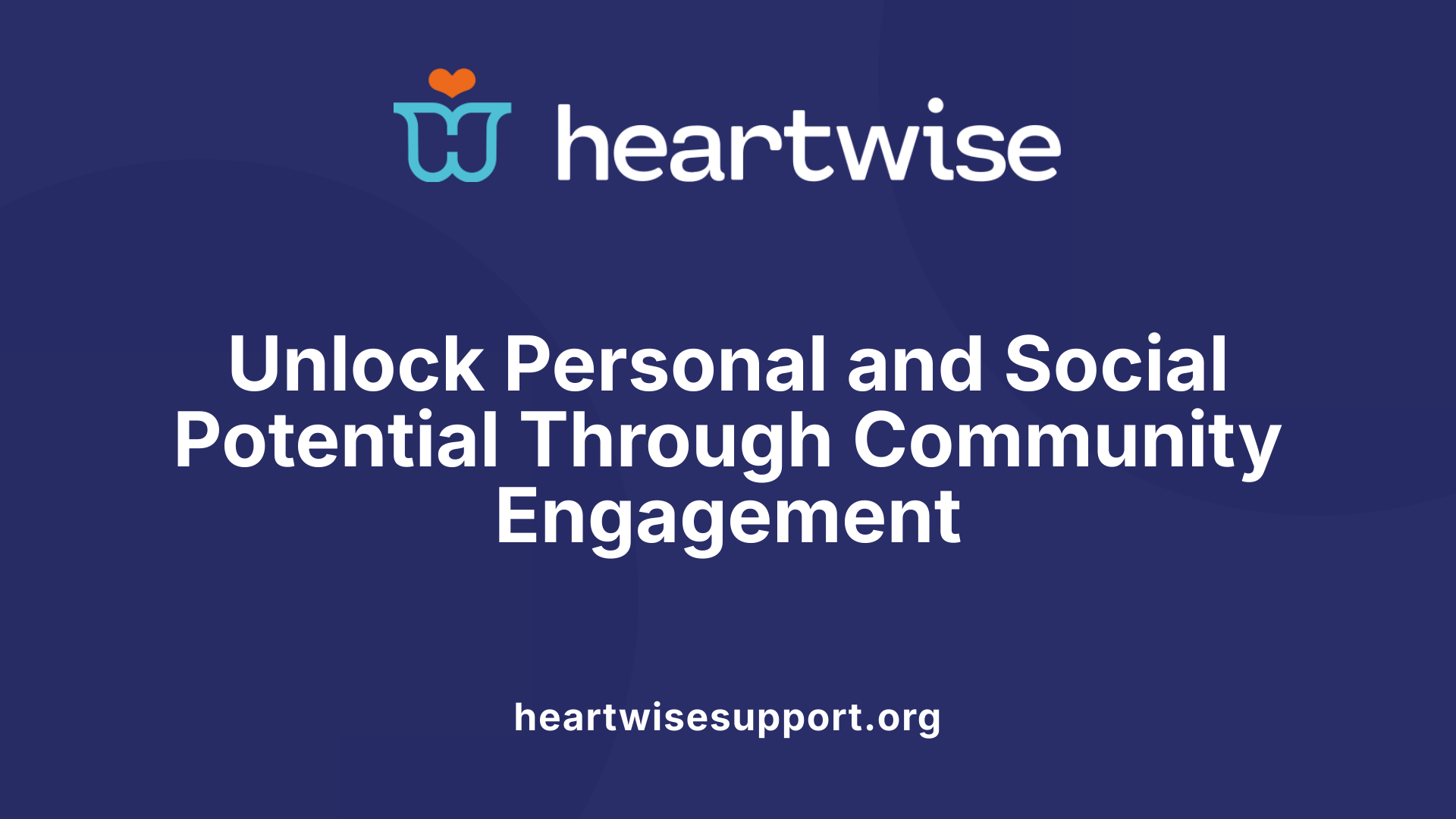
How does community participation influence personal development and social interactions?
Community participation plays a vital role in shaping personal growth and enriching social interactions. When individuals engage in community activities such as volunteering, attending local events, or joining groups, they find opportunities to connect with others, which helps build lasting relationships and a sense of belonging.
This active involvement encourages the development of social skills like communication, teamwork, and empathy. As people work alongside diverse groups, they expand their understanding of different perspectives and cultures, fostering respect and inclusivity.
Participating in community efforts also boosts self-esteem and confidence. Achieving shared goals and supporting others provide a sense of accomplishment, which enhances overall well-being. Moreover, involvement in civic activities strengthens social capital—trust, cooperation, and networks within the community—that support collective resilience.
Engagement in community life not only improves personal health and happiness but also contributes to societal cohesion. It empowers individuals, promotes responsible citizenship, and helps create a more inclusive environment where everyone’s voice matters.
Overall, community participation enriches personal development by fostering emotional health, social skills, and meaningful connections—benefits that ripple throughout society, building stronger, more harmonious communities.
Fostering Inclusive and Resilient Communities
Community involvement acts as a catalyst for individual development and social cohesion. By actively engaging in diverse community activities, individuals can develop vital social and emotional skills, foster empathy, and build supportive networks. These interactions not only enhance personal growth but also strengthen the fabric of society, promoting inclusion, understanding, and resilience. Integrating frameworks like social-emotional learning and utilizing effective strategies and resources ensures that community engagement remains impactful and sustainable. Ultimately, nurturing active participation and fostering a culture of collaboration leads to healthier, more vibrant communities where everyone has the opportunity to thrive and contribute.
References
- Community Engagement - Benefits of Community Service
- [PDF] Impact of Community Service Learning on the Social Skills of Students
- Fundamentals of SEL - CASEL
- 11 Essential Skills to Build Community Engagement
- The Importance of Social and Community Participation | Scope Au
- Developing Social Skills: A Comprehensive Guide for Better ...
- Building Social Skills for Youth with Autism Spectrum Disorder
- Involve Community Members in Supporting Student Learning











